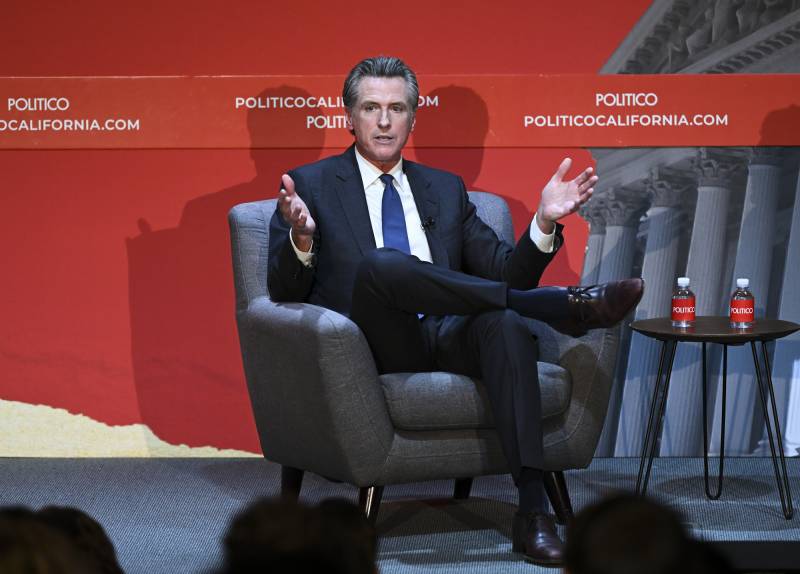Calls Grow to Hold Gov. Gavin Newsom Personally Liable for Injured Officers Amid California Protest Violence
By Newsroom Staff | Published: June 11, 2025
Introduction
As violent protests continue to erupt across major cities in California, a growing number of critics are demanding that Governor Gavin Newsom be held personally accountable for the injuries suffered by law enforcement officers on duty. With dozens of police officers hospitalized following recent clashes in Los Angeles, Oakland, and Sacramento, calls for direct liability have gained traction among lawmakers, police unions, and conservative commentators.
The Demands for Personal Accountability
On social media and in public forums, the message is gaining momentum: “Newsom should pay the bills.” Prominent conservative voices argue that the governor’s perceived inaction and “soft-on-crime” policies have created conditions that embolden violent demonstrators and place law enforcement officers at risk.
“He tied their hands and threw them into a war zone,” said State Sen. Brian Dahle (R). “If anyone should be financially responsible for the fallout, it’s Gavin Newsom.”
This sentiment echoes a national frustration over the blurred lines between lawful protest and urban unrest. Demonstrations sparked by immigration raids, the Trump administration’s protest law crackdowns, and Newsom’s refusal to deploy the National Guard have all fueled recent confrontations.
Police Injuries Mounting
In Los Angeles alone, over 70 officers have reportedly suffered injuries ranging from concussions to broken bones since early May. The LAPD and California Highway Patrol have confirmed a rise in line-of-duty injuries linked to “civil disorder” in protest-heavy zones. Many officers were struck with projectiles, burned by fireworks, or attacked during attempts to clear streets or enforce curfews.
The California Peace Officers’ Association is demanding compensation reforms and more aggressive prosecution of protest-related violence.
What the Law Says
While symbolic calls to make Governor Newsom personally liable are gaining rhetorical steam, legal experts say such a move faces serious constitutional and procedural hurdles. State officials enjoy broad immunity from personal civil liability when acting in an official capacity — a principle grounded in both California law and federal precedent.
However, some activists and attorneys are exploring creative legal approaches, including civil negligence claims or class-action suits against the state for “reckless endangerment of peace officers.”
Newsom’s Response
Governor Newsom has not responded directly to the personal liability accusations. His office issued a statement reaffirming the administration’s “support for peaceful protest” while condemning “all forms of targeted violence — against civilians or law enforcement.”
The statement added: “We are committed to law and order and to ensuring officers receive the medical care and support they deserve.”
Political Fallout and Broader Implications
As midterm campaigns heat up, Republicans are seizing the moment to attack Democratic leadership across the board. Former President Donald Trump, currently in his second term, posted on Truth Social:
“If Newsom can’t protect his own cops, he should pay the price. Total disgrace in California.”
State Assembly candidate Maria Ramirez (R-LA) called for a ballot initiative allowing voters to strip state immunity from governors during declared emergencies.
Public Reactions and Split Sentiment
Public opinion remains sharply divided. A [Pew Research West] poll conducted last week found that 47% of Californians believe Newsom “has not done enough” to prevent protest violence, while 39% support his current approach.
Law enforcement families have been especially vocal. At a Sacramento vigil, the mother of an injured CHP officer said, “My son fought for this state. Who’s fighting for him?”
Conclusion
As protests rage and injuries mount, the pressure on Governor Gavin Newsom continues to rise. Whether calls for personal liability are legally viable or politically symbolic, they reflect a deeper erosion of public trust in the ability of state leadership to protect those on the front lines.
For now, the hospital bills are piling up — and the debate over who should pay them has become the latest flashpoint in a deeply polarized America.
